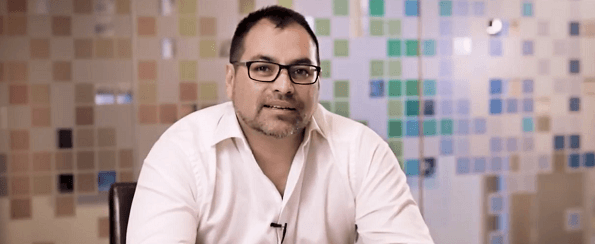Transcript
Being diagnosed with Parkinson’s

We went and saw a lady doctor and she said straight out of the blue – there was no lead up in the conversation or anything just to say, “I’m sorry, Mr Duff” – but it was like, “Mr Duff, you’ve got Parkinson’s disease.”
“What?” I could not believe what she said. Because I had this shake in my arm for ages but it just got annoying, so that was why we were there. When I walked out of the room, I kicked the wall, a lot. I think I nearly put a hole in the concrete. I was really, really annoyed and disappointed and, you know, all of those things.
But over the next couple of days, my wife and I talked about it, and I came to the conclusion that I had an incurable disease, yes. Sorry. I did have an incurable disease but it wasn’t going to kill me, like it did for several other people in the family.
So I sort of thought, “Well, you’re lucky you’ve got time to carry on your life, as it was. And hope into the future that someone will find a cure.” So yeah.
Eventually, we had to go and see a neurologist.
How Parkinson’s affected Barry

You couldn’t maintain your thought processes if you were in a group of people. Like they would be talking about the footy and I wouldn’t be able to keep up with the game. So it was like the siren had gone and they’d gone home, but it was like it was only half time for me.
The other thing was, I was really slow. I’d try to bend over to pick something up. Like you’d just go, scoop, off the floor and away you go. I just couldn’t bend over at all. Well, I could bend over but it took about three times as long. So those were some of the things that made it difficult.
Former treatments
It was mainly just drugs, medication, trying to stop the tremor. They worked but progressively the disease got worse. Yeah. So I was on what Dr Stell termed an industrial dose. I was on the maximum that I could take.
The next step was to have a DBS [deep brain stimulation] operation. Now if he had of said to me, six or eight months before that, I would have just been, “You’ve got to be joking. I don’t want anyone poking around inside my head.”
Book your health appointments online
Find and instantly book your next health appointment with Healthengine
The decision to use DBS

And I was easily persuaded, because I was just getting beyond – out of control, with the tremors and the drugs. And you know, I had to get up four times in the night, (a) to take more drugs but (b) to have to go to the toilet, because some of the drugs I had to take copious amounts of water with. Otherwise they didn’t work properly.
So yeah, the operation – best thing since sliced bread.
Experience of the procedure
When we went to the doctor and his staff and the other people that were in it, I was totally convinced that it was going to be okay. Nothing would go wrong. The operation itself these people had done before. So, I was reasonably confident. No, I just never worried about it. And having said that, four months later I had a knee operation. I was more worried about that, having a knee replaced, than I was having people poking around inside my head.
I got into the gowns and stuff that you wear, and they wheeled me into the room. That was the last thing I remember, was the anaesthetist saying, “Count backwards from 10.” I think I got to nine and a half and I was out. I woke up in the morning and I was fine.
When I woke up in the morning there was just no tremor, nothing else that I’d been taking all these drugs for, all this time. So it was a bit of a surprise for myself, and then the doctors came in and basically said, “Well, that result is pretty good. We might not have to give you any medication.” So, fantastic.
You know if someone comes up to me and says, “What do you think?” I would say, “Get it done.” I reckon it’s the best thing since sliced bread.
Living with DBS

As the disease progresses, I have to go and see the doctor and he looks at my condition and I may or may not have to have the settings [on the DBS machine] changed, or I may have to have more or different medications. But otherwise everything is normal. There are only certain conditions when I get tremor and things like that. It just depends on how much stress I’ve been under during the day and how much work I’ve done and how much dopamine my brain has used up. Not that there is much left, but…
Video kindly featuring:
Barry, Parkinson’s disease patient.
Dr Julian Rodrigues MBBS FRACP; Consultant Neurologist at Hollywood Medical Centre, and Editorial Advisory Board Member of the Virtual Neuro Centre.
All content and media on the HealthEngine Blog is created and published online for informational purposes only. It is not intended to be a substitute for professional medical advice and should not be relied on as health or personal advice. Always seek the guidance of your doctor or other qualified health professional with any questions you may have regarding your health or a medical condition. Never disregard the advice of a medical professional, or delay in seeking it because of something you have read on this Website. If you think you may have a medical emergency, call your doctor, go to the nearest hospital emergency department, or call the emergency services immediately.







